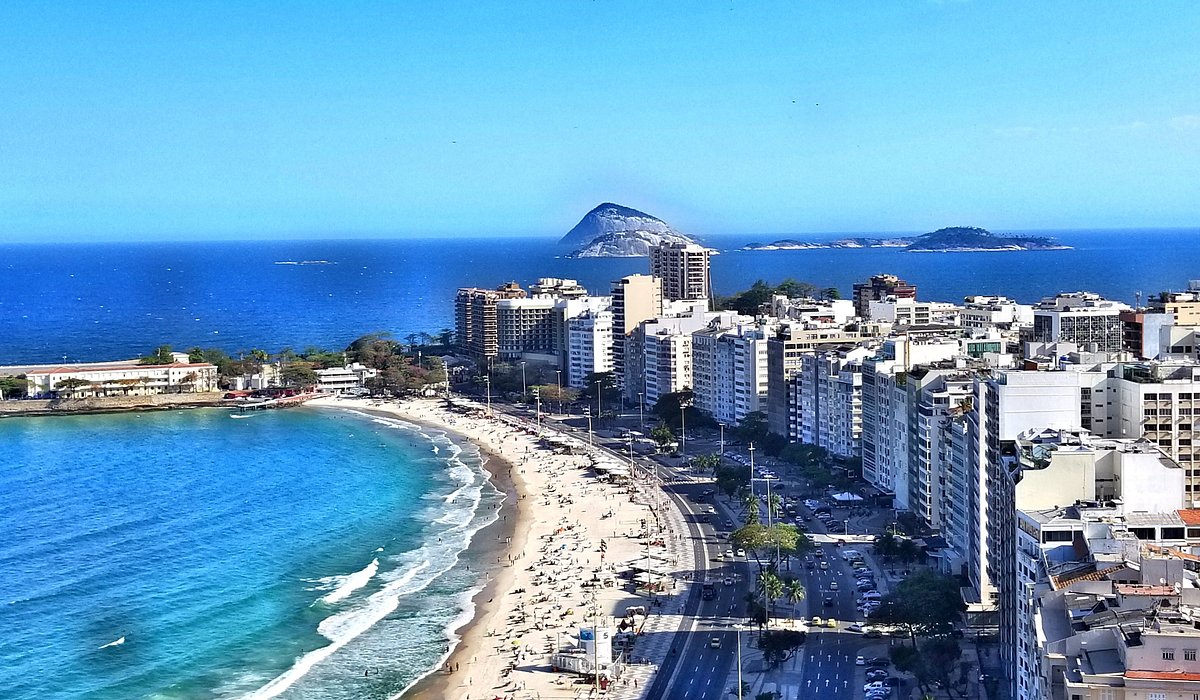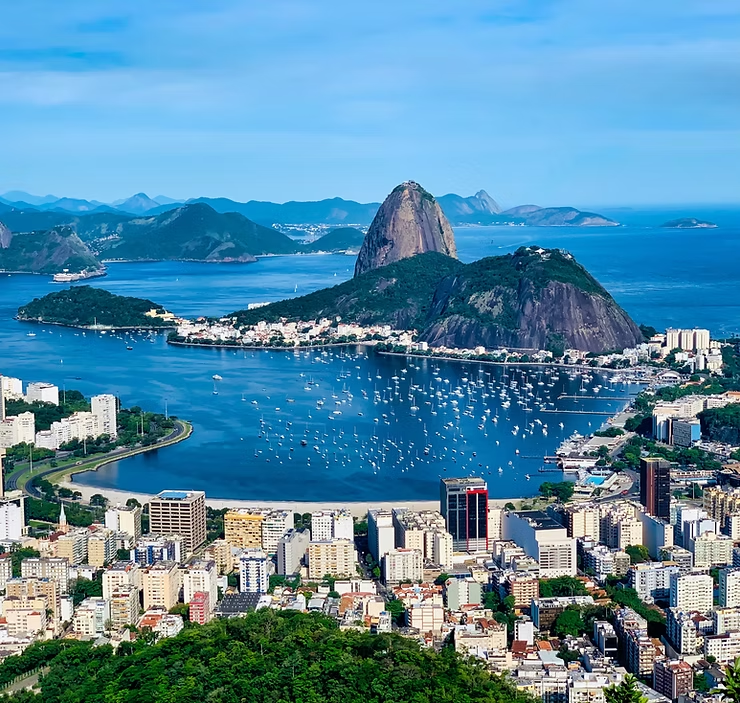
Rio de Janeiro
Explore Rio de Janeiro
Rio de Janeiro
Rio de Janeiro: The Marvelous City of Beaches, Carnival & Culture
Rio de Janeiro is one of the most iconic cities in the world, famous for its stunning beaches, vibrant nightlife, breathtaking landscapes, and rich culture. Whether you're watching the sunset from Sugarloaf Mountain, dancing at Carnival, relaxing on Copacabana Beach, or exploring the lush Tijuca Rainforest, Rio offers a perfect mix of adventure, relaxation, and cultural experiences.
Frequently Asked Questions: Rio de Janeiro, Brazil
Rio has a tropical climate, making it a year-round destination, but different seasons offer unique experiences:
- December–March (Summer & Carnival Season): Best for beaches, lively festivals, and warm weather.
- April–June (Autumn): Fewer crowds, comfortable weather, and great sightseeing.
- July–September (Winter): Mild temperatures, great for hiking and exploring the city.
- October–November (Spring): A good time for outdoor adventures before peak tourist season.
- Christ the Redeemer (Cristo Redentor) – One of the New Seven Wonders of the World, offering panoramic city views.
- Sugarloaf Mountain (Pão de Açúcar) – A cable car ride to breathtaking views of the coastline and skyline.
- Copacabana & Ipanema Beaches – The most famous beaches in the world, perfect for sunbathing and people-watching.
- Selarón Steps (Escadaria Selarón) – A colorful mosaic staircase in the heart of the city.
- Lapa & Santa Teresa – A historic district known for street art, samba clubs, and colonial architecture.
- Tijuca National Park – A lush rainforest in the middle of the city, home to waterfalls and hiking trails.
- Maracanã Stadium – One of the world’s most famous football stadiums, offering tours and live games.
- Botanical Gardens (Jardim Botânico) – A beautiful park with exotic plants and wildlife.
- Carnival in Rio – The biggest party in the world, featuring samba parades, music, and street celebrations.
- Ilha Grande & Angra dos Reis – A tropical paradise with crystal-clear waters, hiking trails, and secluded beaches.
- Feijoada – Brazil’s national dish, a hearty black bean stew with pork and beef.
- Pão de Queijo – Chewy cheese bread, a popular snack.
- Açaí Bowls – A refreshing frozen fruit dish topped with granola and honey.
- Coxinha – Deep-fried chicken croquettes, a delicious street food.
- Moqueca – A Brazilian seafood stew with coconut milk, tomatoes, and spices.
- Churrasco – Brazilian-style barbecue, served with a variety of meats.
- Brigadeiro – A chocolate truffle made with condensed milk and cocoa.
- Caipirinha – Brazil’s signature cocktail made with cachaça, lime, and sugar.
- Metro & Public Buses: The metro is the safest and easiest way to get around the city.
- Taxis & Ride-Sharing: Uber and 99 operate in all major tourist areas.
- Bike Rentals: A great option for exploring Copacabana, Ipanema, and Lagoa Rodrigo de Freitas.
- Trams & Cable Cars: A scenic way to visit Santa Teresa and Sugarloaf Mountain.
- Ferries & Boats: Ideal for day trips to Niterói and Ilha Grande.
- No visa required for stays up to 90 days for travelers from the U.S., Canada, U.K., EU, Australia, and many other countries.
- A valid passport with at least six months of validity is required.
- Proof of onward or return travel may be requested upon arrival.
- Currency: Brazilian Real (BRL).
- Credit cards are widely accepted, but cash is needed for small vendors and beachside kiosks.
- ATMs are available, but use secure, well-lit locations to avoid fraud.
- Exchange money at banks or authorized exchange offices (Casas de Câmbio).
- Portuguese is the official language.
- English is spoken in major tourist areas, but learning basic Portuguese phrases is helpful.
- Common Portuguese words to know:
- Olá! – Hello
- Obrigado/a – Thank you (male/female)
- Quanto custa? – How much does it cost?
- Banheiro – Bathroom
- Brazilians are warm, friendly, and enjoy social interactions.
- A handshake or hug is common when greeting friends.
- Bargaining is not common in stores but is accepted in markets.
- Beachwear is acceptable on the beach, but casual-chic attire is expected in restaurants and nightlife.
- Respect personal space but expect more physical closeness in conversations.
- Restaurants: A 10% service charge is often included, but extra tipping is appreciated.
- Taxis: No tip required, but rounding up is common.
- Hotels & Tour Guides: A small tip for good service is customary.
- For peak season (December–March & Carnival in February): Book 6–12 months in advance.
- For off-season (April–November): Book 2–3 months ahead for better deals.
- For popular attractions (Christ the Redeemer, Carnival tickets, Sugarloaf Mountain): Book at least a month in advance.
- COVID-19 restrictions have been lifted, but always check for updates before traveling.
- Use caution in certain areas of the city—stick to tourist-friendly neighborhoods and avoid favelas without a guide.
- Drink bottled water to avoid stomach issues.
Contact us at 281-229-0862 or admin@pointmetoparadise.com
